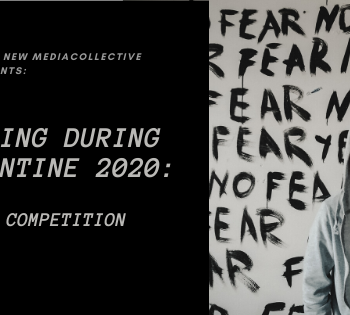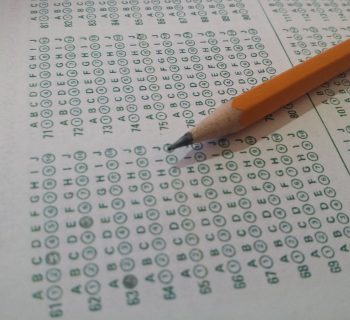Taylor Heinbuch
*Articles reflect the views of the author and or those quoted and do not necessarily represent the views of CCBC or the CCBC Connection.
The collective mental health of college students is in jeopardy and needs to be discussed. Long stigmatized, today’s society has seemingly reached a point of acceptance about making mental health a priority. Yet despite this newfound acceptance, and even though more colleges are distributing funding towards mental health resources by the day, the unfortunate reality is that the mental health of college students has been rapidly declining for almost a decade.
As of 2022, 39 percent of college students in the US report suffering from depression so severe it affects their overall ability to function, and 60 percent report experiencing overwhelming anxiety. To put that into perspective, there are currently 18.99 million college students in the US alone. Of those 18.99 million, 7.4 million suffer from extreme depression, and nearly 11.4 million are experiencing intense anxiety. However, the question is: why are these numbers so staggeringly high in a society where the importance of mental health has never been more emphasized?
“As a society, we are placing more pressure on young adults to achieve success while not equipping them with the necessary life skills. Teaching young people to give 100% always in all areas of life is unrealistic, and as a result, their mental health and well-being suffer,” said Dawn Murray, vice president of Behavioral Health at LifeBridge Health Department of Psychiatry.
Recent studies support this theory, with early childhood development seemingly being the root of the problem. Most of today’s college students are millennials (or Generation Y) and Generation Z, raised by the Baby Boomer generation and Generation X to believe they can achieve anything they put their minds to. And while intended to be encouraging, research shows that, in actuality, it created both cripplingly high self-expectations and an enormous inconsistency in the expectations of life versus reality.
Raising two generations to believe they can accomplish anything by working hard does not account for the natural obstacles life is accompanied by. Therefore, when these completely natural obstacles of life arise, those belonging to Generations Y and Z not only find themselves without the proper coping skills to work through such things but they are also left feeling isolated in their struggles; because nobody ever taught them that it was okay or normal to stumble along the way.
In addition to unrealistic life expectations, society focuses too much on ensuring that students are academically prepared for college while ignoring the importance of emotional preparedness. Emotional intelligence, or the ability to understand, use, handle and manage one’s emotions, is essential to thriving in college. Possessing a higher emotional intelligence has been shown to help students manage negative emotions that unfavorably impact their studies, such as anxiety, boredom and disappointment. Alternatively, when a student is lower on the emotional intelligence scale, their inability to work through negative emotions healthily tends to spill over into the classroom, causing them to flounder even in subjects they tend to flourish in. By focusing solely on academia with zero regard for emotional preparedness, society is cultivating an environment where young people do not have the tools to work through their harmful feelings.
And while the reasons above definitely shed light on why college students are currently amid a mental health crisis, some experts have pointed out that another potential cause for the decline may stem from the lack of stigmatization these days. The younger generations are notably more comfortable starting and participating in mental health conversations. Pair that with the fact that most college students belong to these younger generations that are so at ease discussing and seeking help and diagnosis for mental health-related issues, and one could easily conclude that the increase in pursuing support for these issues leads to a rise in diagnoses, which leads to an overall perceived climb in the number of those suffering. It is not to say that more college students are suffering from mental health issues now than ten or twenty years ago, but that back then, people were not as adamant about receiving support.
But with such an escalation in the number of those who want help, many colleges are struggling with to what extent they are responsible for preserving the mental health of their students, if at all.
Some schools fail to realize that the mental well-being of their students directly correlates to their academic performance. Without addressing the challenges students face outside of the classroom, there is no way for them to progress intellectually in it. Emotional distress hinders great learning because while students suffering from mental health issues may be in class physically, their minds are elsewhere, not retaining any of the information being taught.
Fortunately, though, colleges refusing to accept their responsibility regarding their students’ mental health seem to be the minority, with most schools offering various resources for students suffering.
“Colleges should meet with all their students at least once a semester to ensure everything is going okay. They can also offer support groups run by counselors and even other students obtaining a degree in that field,” said CCBC Catonsville alumna Jaime Hurley, A.A. Psychology.
As luck would have it, many colleges across the country are doing precisely that- including the peer support aspect, and CCBC is one of them. Not only does CCBC offer college-wide clinical counseling services on all campuses, but in 2021 the school partnered with Togetherall. This platform allows any student who signs up for it to receive or provide instant mental health support from or for their peers. This not only gives students the chance to receive help from individuals experiencing or who have experienced the same problems but also ensures they know that they are not alone in their struggles.
There are many factors to consider when discussing the current college student mental health crisis. Society may overall be more accepting of those suffering from mental health issues these days, but acceptance is only part of the struggle. College students need help and support from their peers, school, and society itself to truly begin to thrive mentally and emotionally. And while undoubtedly a sensitive subject, the college student mental health crisis is also a critical one that must be addressed to improve. Change has never come from staying inside comfort zones.
For more information on or to sign up for Togetherall, visit https://togetherall.com/en-us/














